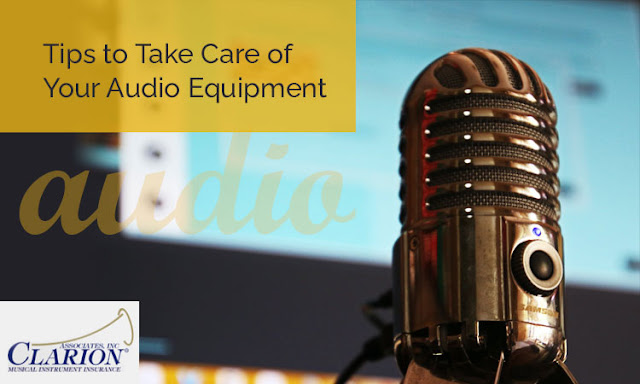There might be many people for who the idea of musical instruments insurance is something out of the blue. Some even might find it utterly surprising to learn that dedicated musical instruments insurance providers do exist. Probably, you are also one of them. Right? And, therefore, you are here to clear your doubts. Let's read on!
Yes, insurance firms that specifically sell insurance for musical instruments are there. And, if you own a musical instrument for whatever reason, you should make sure to have your gears insured in the first place. It will save you a lot of hassles and financial losses while insuring your musical equipment and gear.
What kind of hassles does a musical instrument policy save you from?
Scenario without insurance!
Well, there is nothing you can predict about the uncertainties you live in. Isn't it? What if, say, your guitar is stolen? What if it gets damaged in an accident or while shipping?
To be exact, if your gear is not insured and a mishap happens, you are most likely to pay for it from your pocket. It could be a super-expensive or savings-swiping affair.
Scenario with insurance!
However, if you have had the coverage of an all-encompassing musical instrument insurance plan, you are safe from breaking your bank to replace or buy a new guitar.
Therefore, industry experts always recommend that anyone who owns musical gear should make sure to purchase a suitable insurance plan to protect their more-than-life musical instruments.
It applies to all. Be they musicians, music teachers, students, music shop owners, collectors, or hobbyists.
Home insurance plan - does it not work?
Initially, you might think of your home insurance plan to cover the instruments because it offers personal property coverage. And, as your musical instruments are also your personal belongings, they are automatically covered.
Yes, that is correct. Home or renter's insurance plans cover your gear as personal belongings, there are some limitations, and the coverage is likely to be too low.
Therefore, if you have a costly device, it is better to get specialized insurance instead of relying on your home insurance.
Situations when your home insurance plan might not help
There are several situations where your home or renter's insurance fails to come to your rescue. The first one is already clear, i.e., if you own gear with a high price tag. The other situations are as follows:
You take your gear outside your house.
You or your kid takes the musical instrument, for example, the violin, along with them to the music school, or you are a professional musician. Any accident involving your musical instrument that happens outside your home goes uncovered under your home insurance. However, insurance for musical instruments will cover all.
You are a musical instrument collector.
You collect vintage and expensive musical instruments. Your home insurance plan is less likely to cover vintage gears owing to their extravagant price tags. Dedicated plans cover all types of gear.
You partake in paid performances.
You participate in paid performances using the insured gear. A home insurance plan is least likely to cover the gears that you use in exchange for money. However, a specialized musical instrument insurance plan covers your instruments no matter if you perform in paid shows or you just play for fun at home.
You travel with your gears.
You are a worldwide traveller (a touring artist). In any case, your home insurance policy will not cover your musical instruments worldwide. However, a standalone insurance plan for musical instruments covers you all over the world.
You got stuck in a public liability scenario.
You are involved in an accident of public liability. In such cases, you can expect almost nothing from your home insurance plan. However, an instrument-specific insurance plan will cover you.
Your gear is lost or damaged during transportation.
Also, home insurance plans do not cover any damage or loss incurred during transportation or shipping. However, your musical instrument insurance will be there for you if your gear breaks or gets misplaced, or suffers any kind of loss or damage during transportation.
All set to buy one?
Hopefully, now the differences between home insurance and a dedicated musical instrument plan are clear to you. So, why not get one for your gear too?






